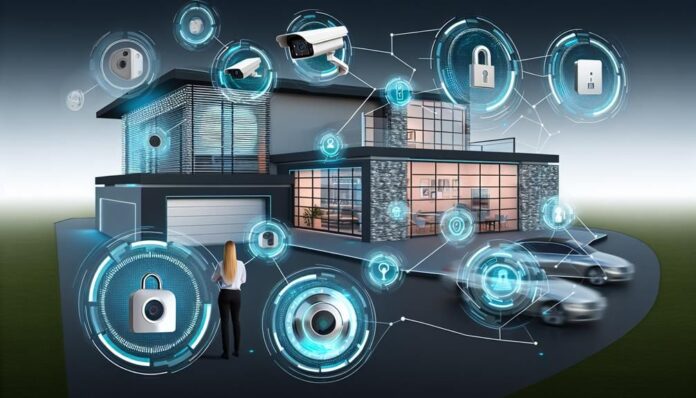Imagine a world where your home is not just a place of comfort, but also a fortress of safety. A world where you can leave your worries behind, knowing that your loved ones and belongings are protected at all times.
In today’s ever-evolving digital age, this dream is no longer a distant fantasy. With the rise of smart home security solutions, you can take control of your home’s safety like never before.
But with so many options out there, where do you begin? How do you navigate the vast sea of smart locks, cameras, and sensors?
Fear not, for this guide is here to shed light on the path towards ultimate peace of mind. Together, let’s explore the world of smart home security solutions and discover how they can transform your home into a sanctuary of safety.
Understanding Smart Home Security Technology
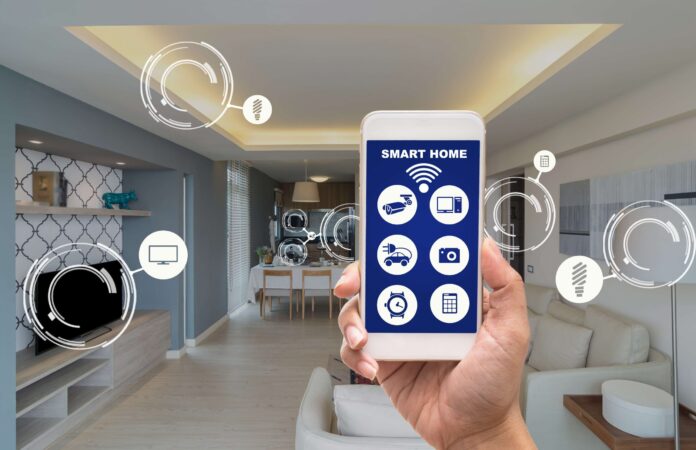
To understand smart home security technology, you need to know how it works and what features it offers.
Smart home security technology utilizes advanced encryption techniques to protect your data and ensure the security of your devices. Encryption is crucial in preventing unauthorized access to your smart home devices and data.
It scrambles your data into an unreadable format, making it virtually impossible for hackers to decipher. This ensures that only authorized users have access to your smart home system.
Privacy concerns are also a significant aspect of smart home security technology. With the increasing number of connected devices in our homes, there’s a growing concern about the privacy of our personal information.
Smart home security technology addresses these concerns by implementing strict privacy protocols. It ensures that your data is securely stored and only accessed by authorized individuals. Additionally, smart home security systems provide you with the ability to control and manage your privacy settings, allowing you to customize the level of access and data sharing.
Choosing the Right Smart Locks
As you consider the security of your smart home system, an important aspect to focus on is choosing the right smart locks. Smart lock features can vary among brands, so it’s crucial to compare different options to find the best fit for your needs.
When comparing smart lock brands, there are a few key features to consider.
Firstly, look for smart locks that offer strong encryption and secure communication protocols. This ensures that your lock’s communication with your smartphone or other devices is protected from hacking attempts.
Additionally, consider the convenience features that smart locks offer. For example, some locks allow you to create temporary access codes for guests, while others have built-in sensors that automatically lock the door when you leave.
Moreover, check if the smart lock is compatible with your existing smart home system. Integration with platforms like Google Assistant or Amazon Alexa allows for seamless control and automation.
It’s also important to assess the durability and reliability of the lock. Look for locks that are weatherproof and have a backup power source in case of a power outage.
Maximizing Home Security With Smart Cameras
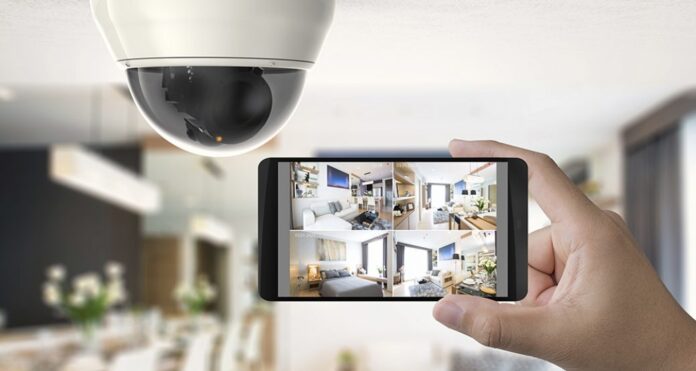
Make the most of your home security by incorporating smart cameras. Smart camera placement is crucial to ensure effective monitoring of your property. Install cameras at key entry points such as doors, windows, and garages, as well as in areas with high traffic like hallways and living rooms. By strategically placing cameras, you can capture any suspicious activity and have a clear view of all angles.
Smart cameras offer remote monitoring capabilities, allowing you to keep an eye on your home from anywhere.
With a smartphone app or a web portal, you can access live feeds, review recorded footage, and receive real-time alerts when motion is detected. This not only gives you peace of mind but also enables you to take immediate action if a security breach occurs.
When positioning your smart cameras, consider factors such as lighting conditions, potential obstructions, and the camera’s field of view. Ensure that the cameras are placed in areas where they can capture clear, unobstructed images.
Additionally, make sure to adjust camera settings to optimize image quality and minimize false alarms triggered by moving objects, pets, or changing lighting conditions.
Maximize your home security by leveraging the remote monitoring capabilities of smart cameras. By strategically placing cameras and configuring them properly, you can enhance your surveillance system’s effectiveness and keep your home protected at all times.
Enhancing Safety With Motion Sensors
Enhance your home security system by incorporating motion sensors for added safety and protection.
Motion sensors are a crucial component of any smart home security setup, as they provide an extra layer of defense against potential intruders. One of the key benefits of using motion sensors is their ability to detect movement in designated areas, triggering an alert or activating other security measures.
Proper placement of motion sensors is essential for maximizing their effectiveness. Install them in strategic locations such as entry points, hallways, and large rooms to ensure comprehensive coverage. By doing so, you can monitor the movement of people within your home and be quickly alerted to any suspicious activity.
Motion sensors can also be integrated with other smart devices, such as security camera systems or alarm systems, creating a robust security network. This integration allows for a more comprehensive approach to home security, ensuring that you’re promptly notified and can take immediate action in case of any potential threat.
With motion sensors, you can rest easy knowing that your home is being actively monitored and protected.
Integrating Alarm Systems for Added Protection
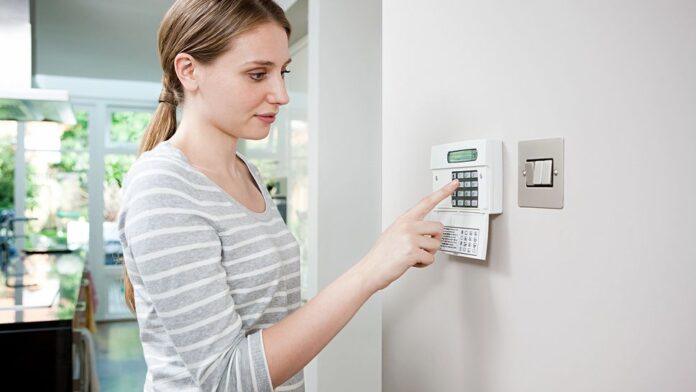
To further bolster your home security, consider integrating alarm systems for an additional layer of protection.
Alarm systems are an integral part of home automation, allowing you to remotely monitor and control your security system from anywhere. With the advancement of technology, alarm systems have become more sophisticated and efficient in detecting potential threats and alerting homeowners.
By integrating alarm systems into your smart home setup, you can enjoy the convenience of remote monitoring.
This means that you can receive real-time notifications on your smartphone or other devices whenever an alarm is triggered. Whether you’re at work or on vacation, you can have peace of mind knowing that you’re always connected to your home security system.
Alarm systems offer a wide range of features to enhance your home security. These include door/window sensors, motion detectors, glass break sensors, and surveillance cameras. When any suspicious activity is detected, the alarm system will sound an audible alarm and send an alert to your mobile device.
In addition to deterring potential intruders, alarm systems can also provide valuable evidence in the event of a break-in. Surveillance cameras can capture high-quality footage that can help identify the culprits and aid in their apprehension.
Integrating alarm systems into your smart home setup is a proactive step towards ensuring the safety of your home and loved ones. With remote monitoring capabilities and advanced security features, you can have peace of mind knowing that your home is protected even when you’re not there.
Frequently Asked Questions
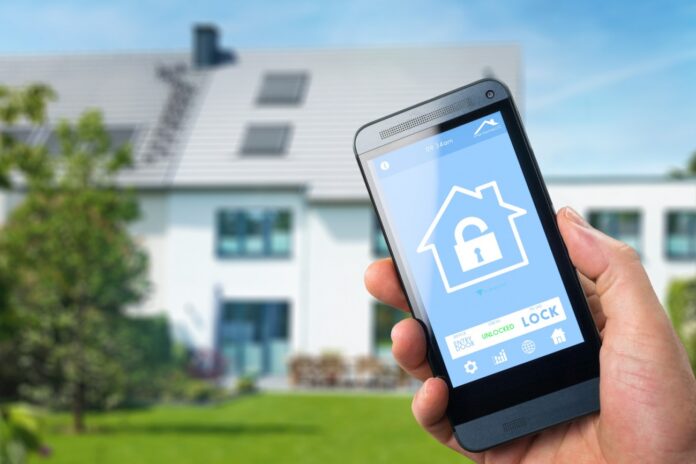
What Are the Potential Privacy Concerns Associated With Smart Home Security Technology?
Privacy concerns with smart home security technology include potential breaches of data security, unauthorized access to personal information, and the risk of surveillance. It is important to implement strong encryption and regularly update security measures to mitigate these risks.
How Can I Ensure That My Smart Lock Is Resistant to Hacking or Unauthorized Access?
To ensure your smart lock is resistant to hacking or unauthorized access, make sure it has strong encryption and supports two-factor authentication. These security measures provide an extra layer of protection for your smart home.
Are There Any Specific Laws or Regulations Governing the Use of Smart Cameras in Residential Areas?
Are there any specific laws or regulations governing the use of smart cameras in residential areas? Yes, there are legal restrictions to ensure the ethical implications, community trust, and privacy concerns are addressed.
Can Motion Sensors Be Customized to Distinguish Between Pets and Intruders?
Yes, pet friendly motion sensors can be customized to distinguish between pets and intruders. Best practices for using motion sensors in smart homes include adjusting sensitivity levels and utilizing pet-specific settings.
What Additional Features Should I Consider When Integrating an Alarm System Into My Smart Home Security Setup?
When integrating an alarm system into your smart home security setup, consider the benefits of professional monitoring. It provides round-the-clock surveillance, immediate response to emergencies, and peace of mind knowing that experts are keeping an eye on your home.

